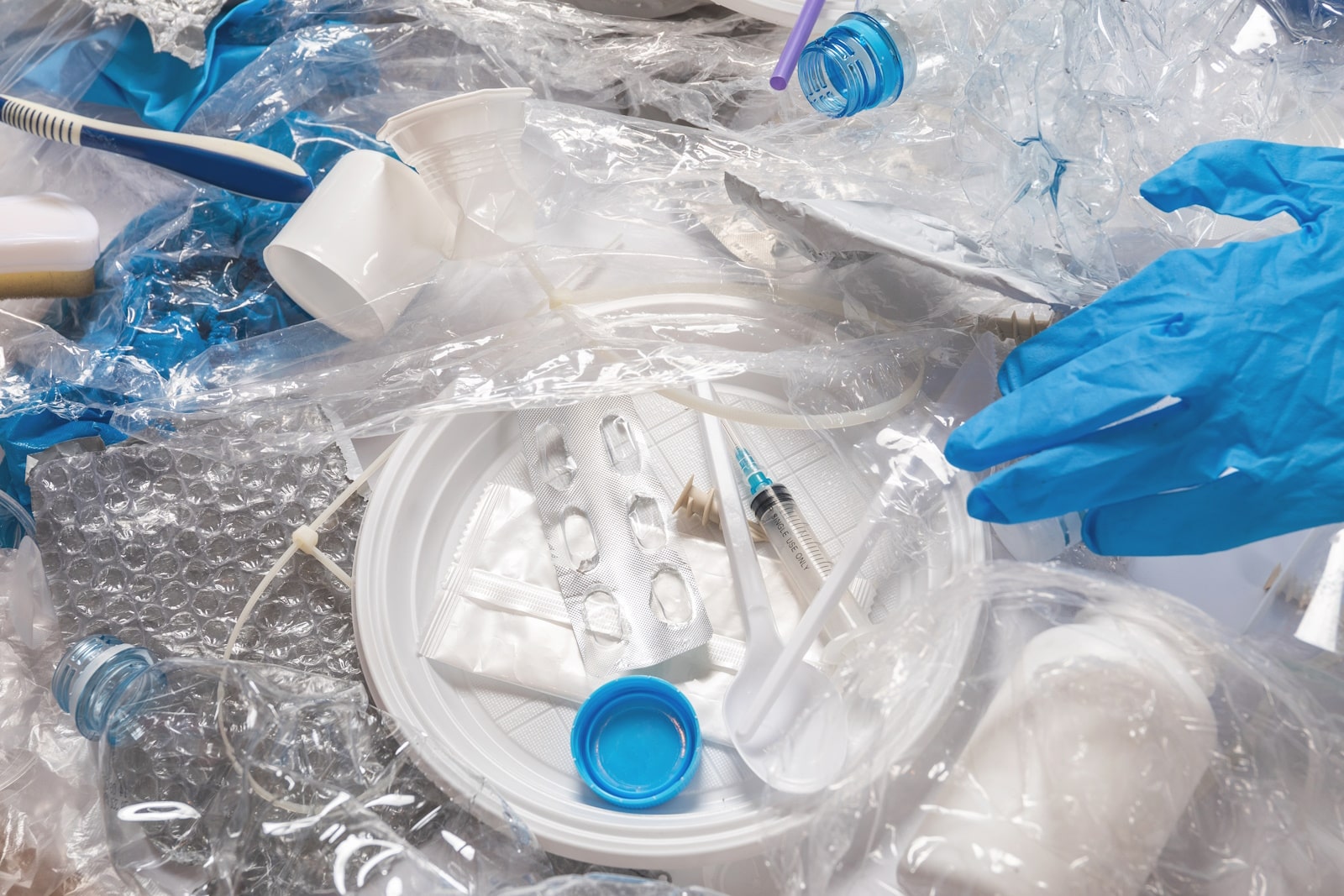Sustainable Approaches for a Medical Waste Company
Medical waste is a significant challenge for any waste company, with healthcare facilities producing vast amounts of waste daily. These materials, ranging from non-hazardous plastics to sensitive pharmaceutical waste, pose both environmental and disposal issues. Upcycling medical waste is an emerging solution, transforming these byproducts into valuable resources. In this blog, we’ll explore how upcycling medical waste is reshaping the healthcare industry, focusing on practices like reusing medical devices, converting plastics into building materials, and recovering metal and glass components.
The Growing Issue of Medical Waste
The healthcare industry generates millions of tonnes of waste annually, much of which ends up in landfills. The World Health Organization (WHO) estimates that medical waste accounts for a significant portion of the global waste stream. The impact on the environment is substantial, as many medical waste items, including plastics and hazardous materials, are not recyclable. However, for a medical waste company, upcycling presents a way to reduce the volume of waste while creating valuable materials for various industries.
Medical Device and Equipment Reuse: A Safe and Sustainable Approach
A major contributor to medical waste is high-cost medical devices and equipment. Instead of disposing of these items after a single use, medical waste companies are now adopting FDA-approved methods for sterilising and reusing medical devices. Sterilisation methods, such as ethylene oxide or steam autoclaving, ensure patient safety while significantly reducing healthcare costs and waste generation.
Another important practice is repurposing outdated medical machinery for training purposes in medical schools. Devices that are no longer suitable for clinical use can still provide valuable hands-on experience for students learning to operate modern equipment, offering an affordable and sustainable educational tool.
Repurposing Non-Hazardous Medical Plastics: Turning Waste into Resources
Plastic is ubiquitous in healthcare, used in everything from blister packs to sterilisation wraps. These materials are often discarded after a single use, but a medical waste company can now explore ways to convert non-hazardous plastics into eco-friendly resources. Plastic blister packs and sterilisation wraps, for example, can be repurposed into bricks or insulation, helping reduce waste in the construction industry.
Additionally, medical plastics are being transformed into furniture, eco-friendly bags, and even 3D printing filament. These applications not only help decrease plastic waste but also provide valuable products for other industries. Recycled medical plastics can even be used in producing durable office furniture, contributing to the growing demand for sustainable products.
Glass and Metal Component Recovery: Creative and Functional Applications
Stainless steel and glass components from medical equipment are valuable materials that can be repurposed in creative ways. Stainless steel, often found in surgical instruments and machinery parts, is durable and versatile. Medical waste companies are finding innovative uses for these materials, turning them into functional items or art pieces, reducing the need for new metal production.
Pharmaceutical glass waste, commonly discarded after medication is used, can be incorporated into construction materials or turned into decorative tiles. These applications not only contribute to the circular economy but also promote the aesthetic use of materials that would otherwise be wasted.
Pharmaceutical Waste Upcycling: A New Frontier for Sustainability
Pharmaceutical waste presents a unique challenge due to the complex chemical nature of many medications. However, research is underway to repurpose active ingredients from pharmaceutical waste for industrial or scientific purposes. A medical waste company can redirect these ingredients to create chemicals for industrial use or raw materials for research can help reduce the environmental impact of pharmaceutical waste.
Additionally, organic components from medical waste, such as biodegradable materials, can be transformed into compost for non-food crops, improving soil quality while decreasing the volume of waste sent to landfills.
Benefits of Upcycling Medical Waste
Upcycling medical waste offers both environmental and economic benefits. By reducing the need for raw materials, this practice helps lower carbon footprints and conserves valuable resources. Additionally, repurposed materials can be sold or used in the creation of new products, creating business opportunities and contributing to a circular economy.
However, to ensure safety, compliance with regulations and standards is critical. Medical waste companies must follow stringent guidelines to ensure that upcycled materials are safe for their intended uses, especially in industries like construction and furniture manufacturing.
Future Perspectives: Embracing Sustainable Practices
The future of upcycling for the medical waste company looks promising, with technological advancements helping improve the efficiency and scope of these practices. The development of more sophisticated sterilisation techniques and recycling technologies could expand the range of materials that can be upcycled. Additionally, policymakers are increasingly recognising the importance of sustainable waste management in healthcare, driving innovation in medical waste practices.
In South Africa, the National Environmental Management: Waste Act sets out clear guidelines for medical waste disposal and recycling, ensuring that upcycling efforts comply with local regulations.
Conclusion
Upcycling medical waste offers a sustainable solution to the growing issue of healthcare waste. By repurposing medical devices, plastics, metals, and pharmaceutical components, the healthcare industry can reduce waste, conserve resources, and create valuable products. Medical waste companies are leading the charge, finding innovative ways to reduce the environmental impact of medical waste while generating new business opportunities.
If you’re looking for responsible waste management solutions, contact us at A-Thermal. We specialise in sustainable medical waste solutions that make a positive environmental impact, ensuring your waste is managed safely and effectively.







